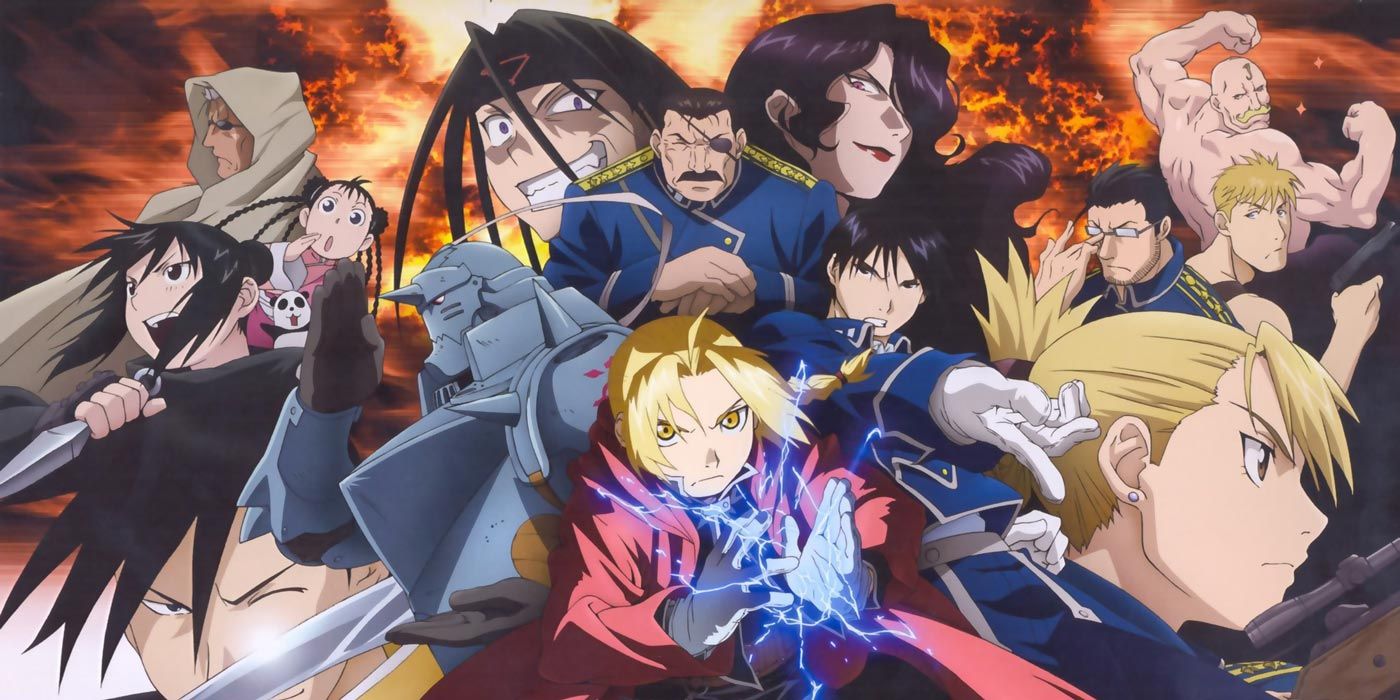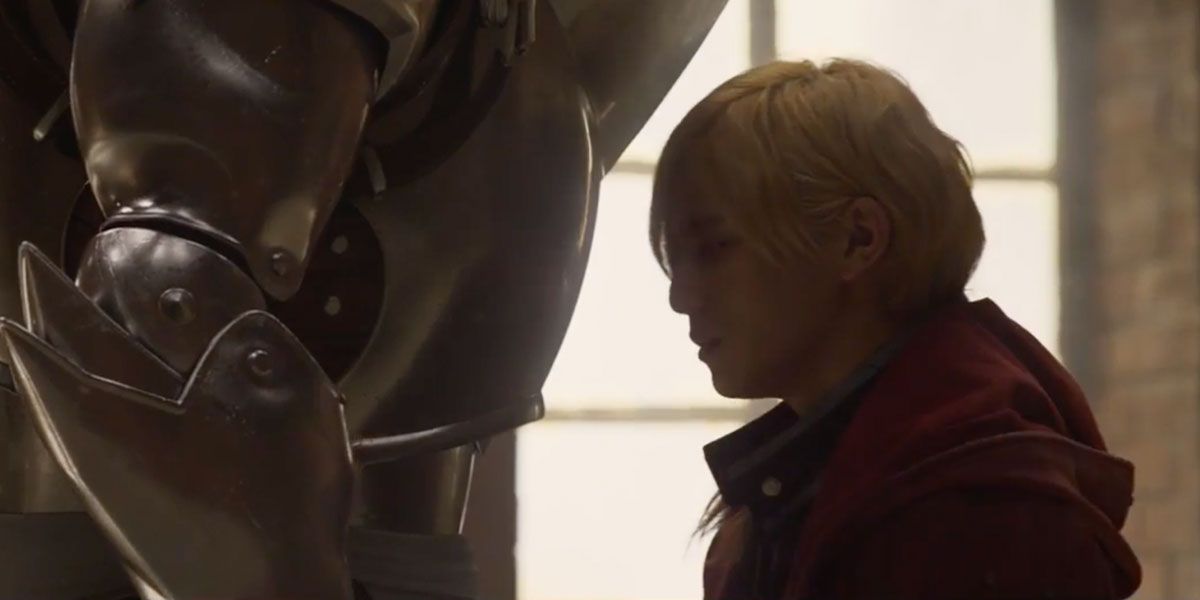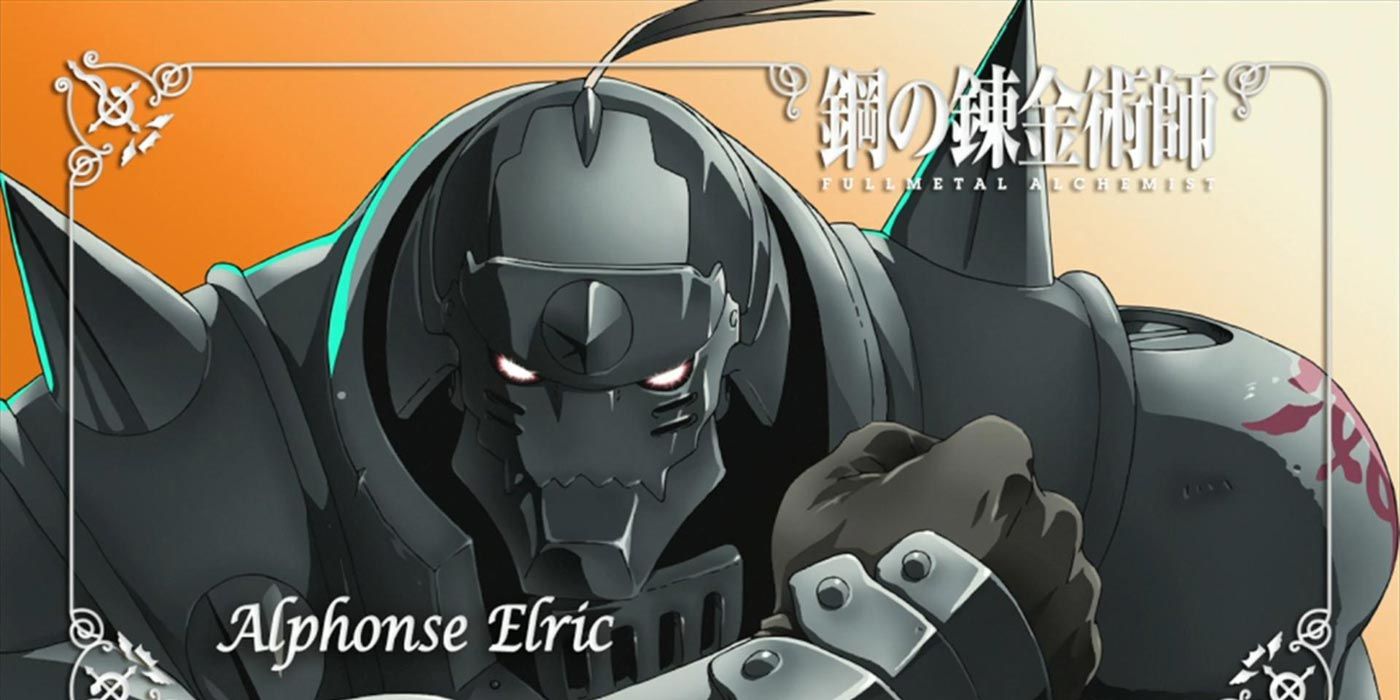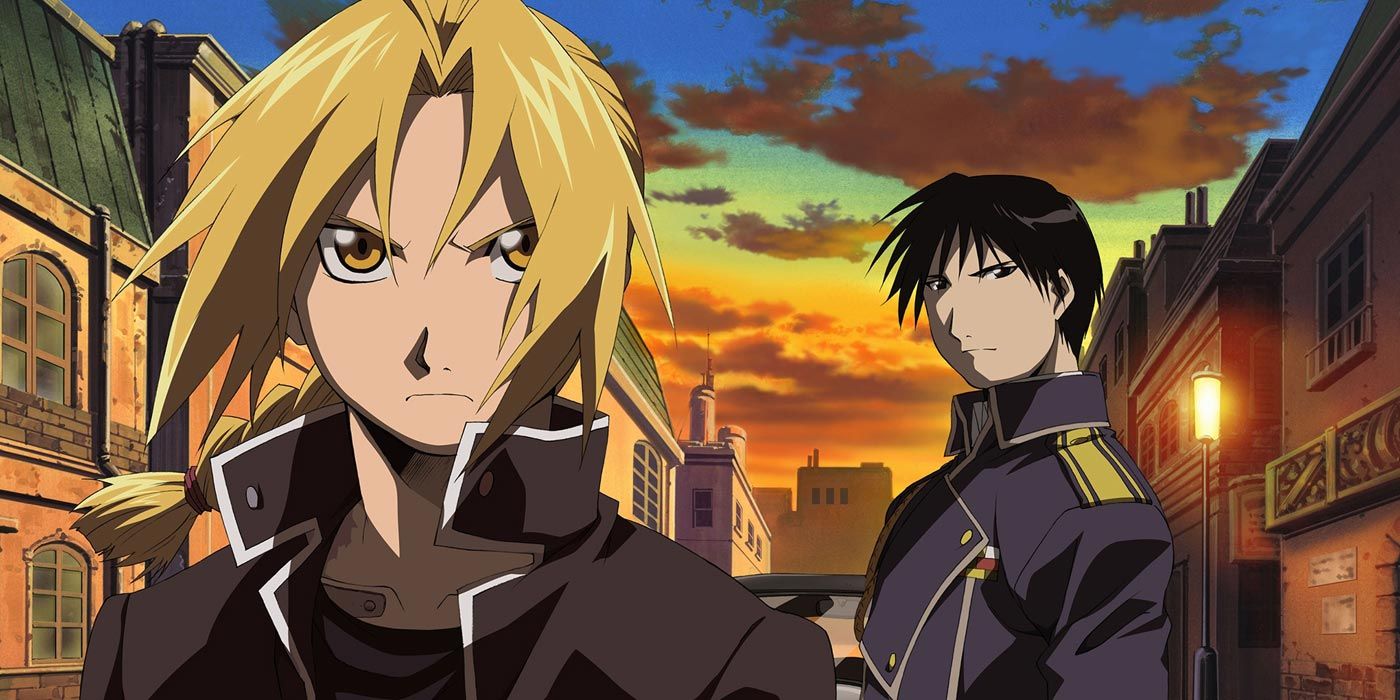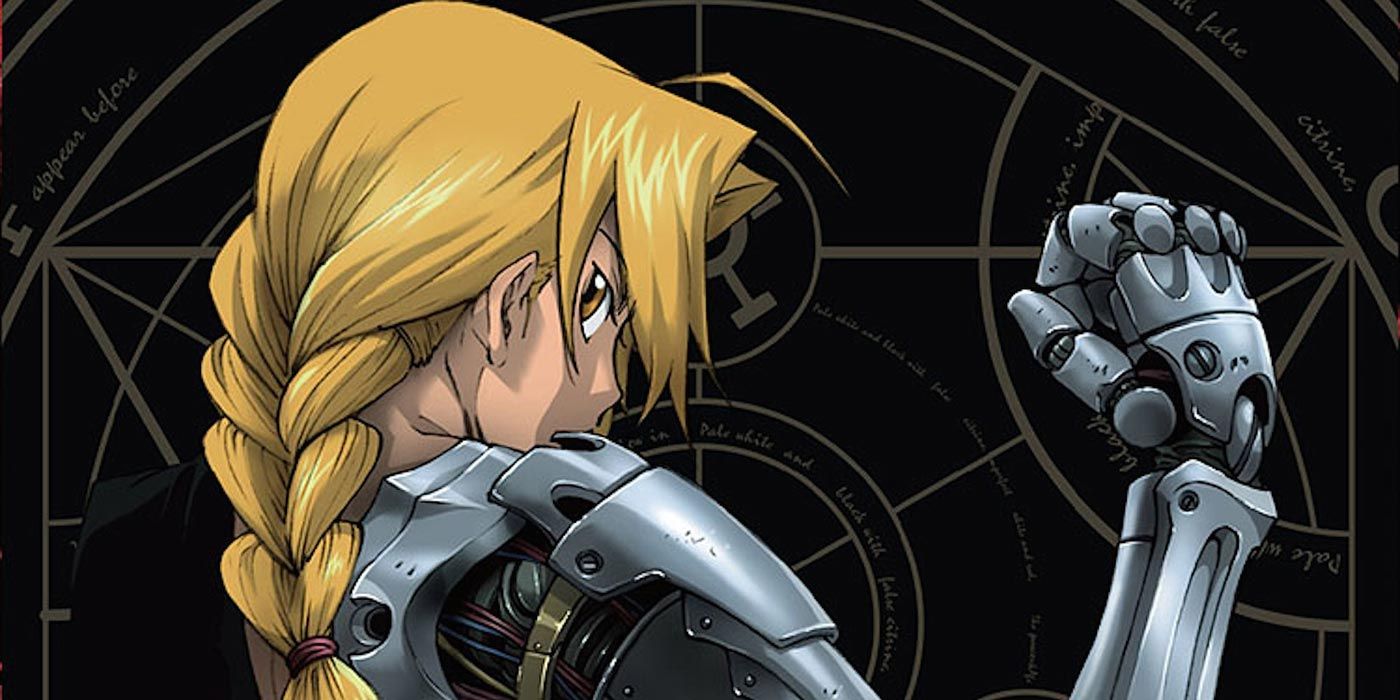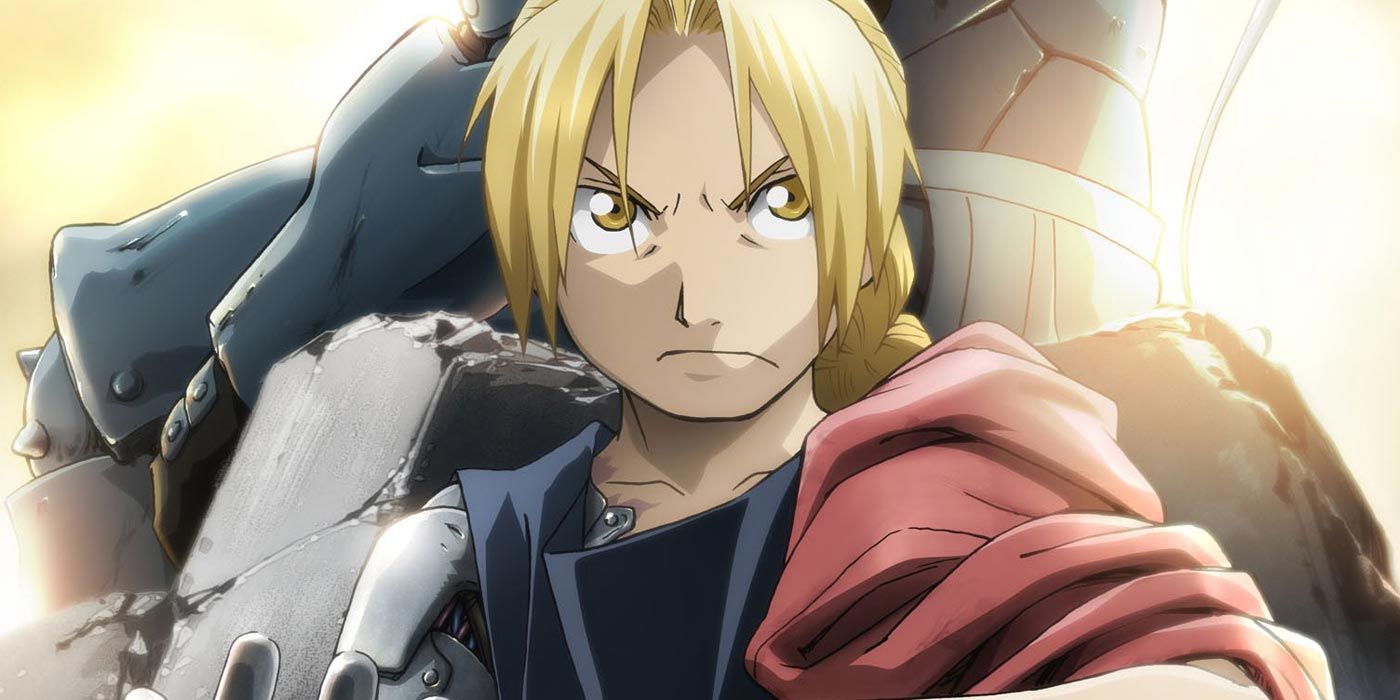With the release of the first teaser trailer for "Fullmetal Alchemist," fans of the popular manga/anime series breathed a collective sigh of relief. After seeing footage from the anticipated-slash-dreaded live-action adaptation, the original apprehension for the film started to evaporate, excitement for the long-awaited project beginning to bloom in its place.
That fans were leery of the "Fullmetal Alchemist" film came as no surprise given the track record of live-action adaptations in recent memory, particularly those that are produced in the United States ("Dragon Ball," "Avatar: The Last Airbender"), though "Fullmetal Alchemist" is being is being adapted by a Japanese studio and isn't set to be translated into English anytime soon. Of specific concern for this project is how it will not only adapt the storyline and stay true to its source material, but how it will properly capture the effects of alchemy.
RELATED: Cyborgs and Cyber Brains: A User's Guide to "Ghost in the Shell"
"Fullmetal Alchemist" is a series that, unlike more mainstream anime like "Naruto" or "One Piece," doesn't receive the kind of spotlight or attention that it is due. Those watching the teaser without any the context that comes from familiarity with the source material may be visually impressed, but left a little confused as to exactly what this film is based on. Which brings us to this article; we're here to give you a basic rundown of "Fullmetal Alchemist," a series that has spawned a massive, if often overlooked following, and often acts as one of the gateway series into the world of anime and manga.
"Fullmetal Alchemist" is Based On A Manga Series
Like “Ghost in the Shell,” another long-running anime/manga coming to theaters in a live-action incarnation, “Fullmetal Alchemist” is based on a manga series. Written by Hiromu Arakawa, the series debuted in July 2001 and ran until June 2010, spawning 27 volumes and two anime adaptations, all of which received positive reception. The respective adaptations also resulted in two animated films as well as six novels and several video game releases on Playstation 2, Playstation Portable and Nintendo DS.
When -- and Where -- Does the Story Take Place?
“Full metal Alchemist” is set in the fictional country of Amestris, in an Industrial Revolution-type world very akin to that of 1940s Europe. In this world, the study of alchemy is widespread and acts as a sort of way to blend the natures of magic and science together. The scientists who study this craft are, of course, known as alchemists. With the use of transmutation circles, they have the ability to manipulate matter as they see fit, for a variety of purposes. Amestris employs especially skilled alchemists within its military, known as State Alchemists, who gain special access and government privileges unavailable to the average citizen. They are also infamous for their skills in combat and are often given a special title relating to their practiced form of alchemy or specific qualities and traits.
RELATED: Live-Action "Fullmetal Alchemist" Unveils First Teaser Image
But, as with all science, there limits that come with practicing alchemy. In the world of “Fullmetal Alchemist,” all alchemists must abide by the universal rule known as the Law of Equivalent Exchange, which basically states that one cannot create something out of nothing, and for whatever is created, something equal must be given in exchange to perform the act. Because of this rule, the transmutation of humans is strictly forbidden, as the results of attempting such a feat are catastrophic on the user(s) who attempt to do so.
Who -- or What -- Does the Story Follow?
At the center of "Fullmetal Alchemist" is 15-year old Edward Elric and his 14-year old brother Alphonse, who, after the death of their mother, begin the study of alchemy in the hopes of transmuting her and bringing her back to life. But despite their best efforts, it backfires, with Edward losing his left leg and Alphonse having his entire body destroyed. With some quick thinking by Edward, he manages to bond Alphonse’s lingering soul into a bulky suit of armor, at the cost of own his right arm.
Now mutilated and discorporeal, the Elric brothers seek to restore their bodies with the use of the Philosopher’s Stone, an item said to be powerful enough to restore what they lost by violating the laws of alchemy. But finding the Stone is easier said than done, and the secrets surrounding the sacred item set forth unforeseen events in motion. Edward, outfitted with a special prosthetic arm and leg, decides to undergo the exam to become an official State Alchemist for the Amestris government. He passes with flying colors, and is dubbed the ‘Fullmetal Alchemist’ thanks to his metal limbs.
With his title in hand, the two brothers seek to find the secrets surrounding the Philosophers Stone, though what they begin to uncover is just the tip of the iceberg.
RELATED: 15 Must-Read Manga for Comic Fans
Why Is the Series So Popular?
The series has seen widespread success among fans for a variety of reasons. Its setting draws many parallels to various aspects of Europe during the 1940s, particularly that of Nazi Germany when military-rule dictated much of the area's political actions. The world-building of “Fullmetal Alchemist” is unique in that it takes inspiration from real-world events such as World War II and conflicts in the Middle East to build a setting where a matter-manipulating science like alchemy and religion are constantly at war with each other. It also deals with mature themes such as war and aspects of racial and religious oppression.
More than anything, it is a series that explores the idea of “Truth” as it relates to both scientific exploration and spiritual awakening. In a world where alchemists literally have the ability to shape their environments as they see fit, religion is still a powerful guiding force. The dichotomy between science and religion is challenged throughout the entirety of “Fullmetal Alchemist,” and remains the central core of the series, as the purest forms of good and evil from both are explored by its characters.
What Material is Worth Consuming Outside of the Manga?
Fortunately, "Fullmetal Alchemist" is on a smaller scale than other popular series like “Ghost in the Shell.” For those who don’t want to read the manga, there are two anime adaptations by Bones Studio titled “Fullmetal Alchemist” and “Fullmetal Alchemist: Brotherhood.” The former, which debuted in 2003, is loosely adapted from its manga source material and is essentially a re-telling of the original story. Since the manga had not yet concluded at the time this version was aired, it has its own ending, origins and backgrounds for some of the characters. “Full metal Alchemist: Brotherhood,” on the other hand, follows the events of the original manga much more directly.
When many often ask which to watch, the overwhelming answer is usually “Brotherhood,” since it fairly directly adapts the source material. But it doesn’t mean that the 2003 adaptation is not without its merits. In fact, both are worth evaluating next to each other, if only to weigh the differences between them.
RELATED: 15 Most Memorable Dragon Ball Z Villains
Both anime adaptations are available through streaming sites like Netflix and Crunchyroll, with the former having access to a very well done English dubbed version of both. The 2003 version consists of 51 episodes, while "Brotherhood" spans 64 episodes. There is a reason many fans often consider "Fullmetal Alchemist" to be one of the best anime series ever, one worth watching again and again. If you're looking for a series with real-world parallels, solid action, well-developed characters and an engaging plot, following the Elric brothers is a solid bet.

